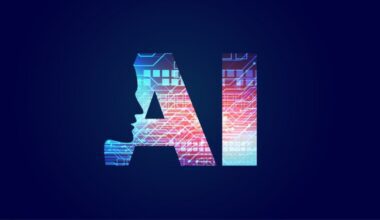Summary: The role of a Data Scientist has emerged as one of the most coveted and lucrative professions across industries. Combining a blend of technical and non-technical skills, a Data Scientist navigates through vast datasets, extracting valuable insights that drive strategic decisions.
Introduction
In today’s data-driven world, the demand for skilled Data Scientists continues to soar. From analysing complex datasets to extracting valuable insights, Data Scientists play a pivotal role in driving business decisions and innovation.
To embark on a successful journey in the realm of Data Science, mastering key skills is imperative. In this comprehensive guide, we delve into the essential skills required for Data Scientists and how you can hone them to unlock endless opportunities in this rapidly evolving field.
Possessing the right skills is akin to wielding a potent toolkit that empowers professionals to navigate through vast troves of data and extract meaningful insights. This will also help you crack your Data Science interview with ease.
Aspiring Data Scientists must equip themselves with a diverse skill set encompassing technical expertise, analytical prowess, and domain knowledge. Whether you’re venturing into Machine Learning, predictive analytics, or data visualization, honing the following top Data Science skills is essential for success.
Acquiring the right skill sets helps you master the technology and also promotes your profile, thus making you eligible for better pay.
Essential Technical Skills
To embark on a Data Science journey, a strong foundation of technical skills is essential. This section explores the core competencies that form the backbone of a successful Data Scientist, from programming languages and statistical knowledge to Machine Learning and data visualisation.
Armed with these skills, you’ll be well-equipped to tackle the challenges and opportunities presented by the vast and complex world of data.
Understanding of Statistics and Probability
A strong foundation in statistics and probability theory forms the bedrock of Data Science. Proficiency in probability distributions, hypothesis testing, and statistical modelling enables Data Scientists to derive actionable insights from data with confidence and precision.
Mastery of statistical concepts equips professionals to make informed decisions and draw accurate conclusions from empirical observations.
Proficiency in Programming Languages
Fluency in programming languages such as Python, R, and SQL is indispensable for Data Scientists. These languages serve as powerful tools for data manipulation, analysis, and visualisation.
Python, renowned for its versatility and rich ecosystem of libraries, including NumPy, Pandas, and Matplotlib, empowers Data Scientists to perform a myriad of tasks efficiently. R, with its robust statistical capabilities, remains a popular choice for statistical analysis and data visualisation. Data wrangling and preprocessing
Data seldom comes in a pristine form; it often requires cleaning, transformation, and preprocessing before analysis. Proficiency in data wrangling techniques allows Data Scientists to cleanse raw datasets, handle missing values, and format data for analysis effectively.
Familiarity with tools like Pandas and tidy-verse streamlines the data preprocessing pipeline, enabling professionals to prepare data for downstream analysis seamlessly.
Machine Learning Algorithms
A deep understanding of Machine Learning algorithms is indispensable for Data Scientists seeking to build predictive models and uncover patterns in data. From linear regression and decision trees to neural networks and clustering algorithms. Proficiency in a diverse array of Machine Learning techniques equips professionals to tackle a wide spectrum of Data Science tasks.
Leveraging libraries such as Scikit-learn and TensorFlow, Data Scientists can implement Machine Learning algorithms with ease and precision.
Data Visualisation and Interpretation
Effective data visualisation is instrumental in communicating insights and findings to stakeholders in a clear and compelling manner. Mastery of data visualisation tools like Matplotlib, Seaborn, and Tableau empowers Data Scientists to create informative visualisations that elucidate complex trends and patterns hidden within data.
By harnessing the power of visualisation, Data Scientists can distil insights and facilitate data-driven decision-making across organisations.
Domain Knowledge and Business Acumen
Beyond technical expertise, possessing domain knowledge and business acumen is crucial for Data Scientists to deliver actionable insights that drive tangible business outcomes.
Understanding the intricacies of specific industries and domains enables Data Scientists to contextualise their analyses and tailor solutions to address real-world challenges effectively. By aligning Data Science initiatives with strategic business objectives, professionals can unlock value and foster innovation within organisations.
Non-Technical Competencies: Nurturing Essential Skills
Non-technical skills are equally crucial. This section explores communication, teamwork, and business acumen – essential for translating data insights into actionable solutions.
Business Acumen and Domain Expertise
Beyond technical proficiency, business acumen and domain expertise distinguish exceptional Data Scientists from their peers. Understanding the intricacies of industry-specific challenges, key performance indicators (KPIs), and stakeholder requirements fosters alignment between data initiatives and strategic objectives.
Bridging the gap between data insights and business impact, Data Scientists drive tangible value and innovation across diverse domains, from healthcare and finance to e-commerce and beyond.
Effective Communication and Collaboration
The ability to communicate complex findings in a clear, concise manner is paramount for Data Scientists to influence decision-makers and foster a data-driven culture.
From crafting insightful reports and presentations to engaging stakeholders in meaningful discussions, effective communication skills facilitate knowledge sharing, foster collaboration, and inspire actionable outcomes.
Moreover, cultivating interdisciplinary collaboration across teams enhances creativity, fosters diverse perspectives, and accelerates the pace of innovation in data-driven environments.
Adaptability and Lifelong Learning
In a rapidly evolving landscape, adaptability and lifelong learning are indispensable virtues for Data Scientists seeking to stay ahead of the curve. Embracing emerging technologies, exploring novel methodologies, and participating in continuous professional development initiatives. It enable professionals to expand their skill sets, navigate industry disruptions, and capitalise on new opportunities.
Nurturing a growth mindset and embracing challenges as opportunities for growth. Data Scientists remain resilient, agile, and future-ready in an ever-changing world.
The Journey Towards Mastery
Embarking on the journey to become a Data Scientist requires a holistic approach that encompasses both technical mastery and non-technical competencies.
By honing a diverse skill set, embracing lifelong learning, and fostering collaborative partnerships, aspiring professionals can navigate the complexities of Big Data and unlock limitless opportunities for innovation and impact.
Mastering the top Data Science skills is pivotal for aspiring Data Scientists to thrive in today’s data-centric landscape. By cultivating a diverse skill set encompassing statistics, programming, Machine Learning, and domain expertise, professionals can embark on a rewarding journey in the dynamic field of Data Science.
Continuous learning, practical experience, and a passion for data-driven discovery are the cornerstones of success in this ever-evolving domain.
Frequently Asked Questions
What are the Core Technical Skills for a Data Scientist?
A strong foundation in programming (Python or R), statistics, and Machine Learning is essential. Proficiency in SQL for database management and data visualisation tools like Tableau or Power BI is also crucial.
How Can I Develop a Data Science Portfolio?
Start with personal projects using publicly available datasets. Contribute to open-source projects or participate in Data Science competitions on platforms like Kaggle. Highlight your projects on platforms like GitHub to showcase your skills to potential employers.
How Important is Domain Knowledge in Data Science?
Domain knowledge can significantly enhance your Data Science career. Understanding the industry you’re working in allows you to ask the right questions, interpret results effectively, and provide valuable insights. While not always mandatory, it can give you a competitive edge.






